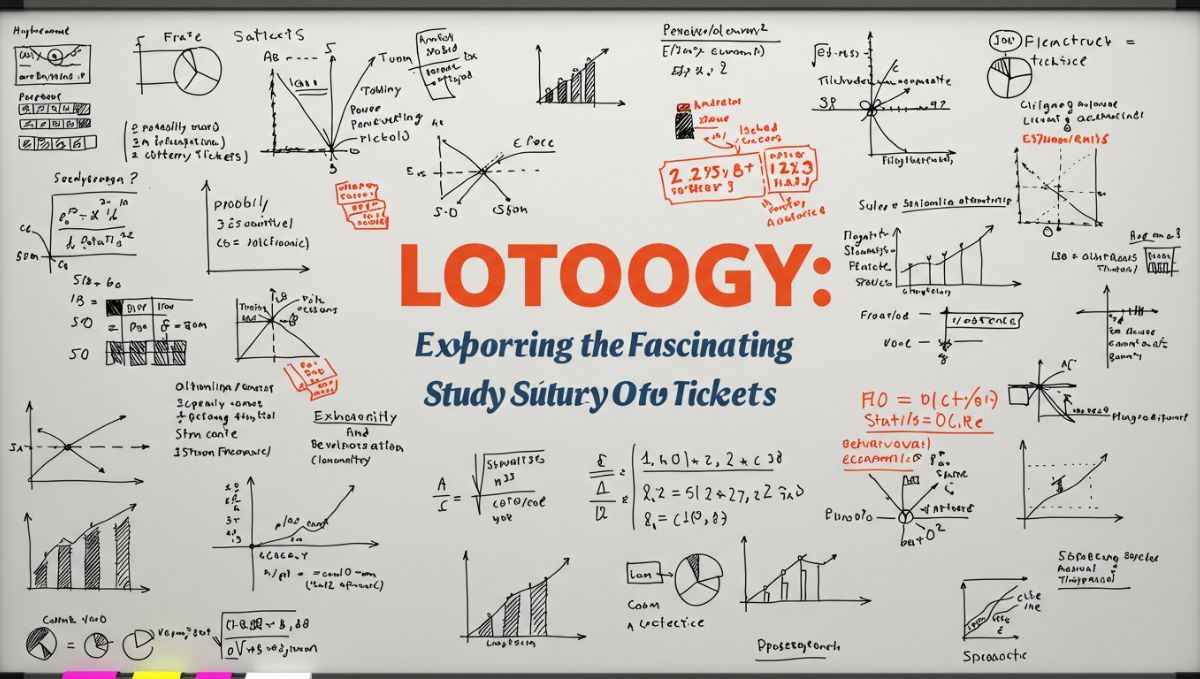In the world of collectibles, stamps, coins, and postcards often take the spotlight. Yet, there is another fascinating hobby that combines history, culture, and chance—lotology. Lotology is the study and collection of lottery tickets, both used and unused, from around the world. While it may seem like a niche interest, lotology offers a unique way to explore design, cultural heritage, and the evolution of games of chance.
What is Lotology?
At its core, lotology refers to the practice of collecting and analyzing lottery tickets. The word itself is derived from “loto” or “lottery” and “-logy,” meaning the study of. Like philately (stamp collecting) or numismatics (coin collecting), lotology provides a window into history through everyday printed materials.
Lottery tickets, whether they are simple scratch-offs or elaborate designs, reflect the society that produces them. For collectors, lotology is not just about amassing pieces of paper—it is about preserving stories, events, and cultural expressions.
The Origins of Lotology
Lottery tickets have been around for centuries, with some of the earliest lotteries dating back to Renaissance Europe and even ancient China. While official lotology as a hobby is relatively modern, the appeal of keeping tickets as souvenirs has existed since the very beginning.
As national and state lotteries grew in popularity during the 20th century, so did the variety of tickets. Collectors began to notice the beauty and cultural symbolism in these designs, and lotology emerged as a distinct form of collecting. Today, enthusiasts worldwide exchange, sell, and showcase their collections in online communities and exhibitions.
Why Lotology Appeals to Collectors
The charm of lotology lies in its blend of simplicity and depth. Unlike expensive collectibles such as rare coins or stamps, lottery tickets are accessible to everyone. But what makes lotology truly captivating are the reasons behind the collection:
-
Historical Significance – Tickets serve as time capsules, reflecting eras, governments, and social movements.
-
Art and Design – Many lottery tickets are beautifully illustrated, showcasing national symbols, cultural motifs, or promotional themes.
-
Rarity and Value – Misprints, limited editions, and old unused tickets can become valuable over time.
-
Personal Connection – For some, tickets represent moments of hope, excitement, or nostalgia.
Lotology as Cultural Preservation
Every lottery ticket tells a story. Through lotology, collectors preserve a record of how societies view chance, luck, and opportunity. For instance, tickets may commemorate significant events such as world fairs, sporting tournaments, or national anniversaries.
In countries where lotteries are state-run, tickets often carry symbols of heritage and pride. Collectors who practice lotology gain more than just souvenirs—they accumulate pieces of cultural history that may otherwise be forgotten.
How to Start a Lotology Collection
For beginners, diving into loto logy is both simple and exciting. Here are a few steps to get started:
Step 1: Collect Local Tickets
Start with lottery tickets from your region. They are easy to obtain and serve as an accessible foundation for your loto logy journey.
Step 2: Learn About Ticket Types
There are various kinds of tickets, including instant scratch-offs, draw-based tickets, and promotional editions. Each type adds diversity to a collection.
Step 3: Preserve Carefully
Like stamps or postcards, tickets can fade or tear. In loto logy, preservation is crucial. Use acid-free sleeves, albums, and protective storage to maintain condition.
Step 4: Join Lotology Communities
There are online groups, forums, and even clubs dedicated to loto logy. Joining these spaces helps collectors exchange tickets, knowledge, and stories.
Step 5: Research and Document
Collectors who value loto logy often keep notes about the origin, year, and design of each ticket. This documentation increases both personal and potential market value.
The Value of Lotology Collections
Not all lottery tickets will appreciate in monetary value, but certain pieces within loto logy collections can become rare treasures. Key factors include:
-
Age – Older tickets, especially those no longer in circulation, are often prized.
-
Condition – Unused or well-preserved tickets hold higher value.
-
Errors – Misprints or printing flaws make tickets unique and desirable.
-
Events – Tickets tied to major cultural or sporting events may become collector’s items.
Just as in other collectible fields, the value in loto logy comes from a blend of rarity, demand, and historical importance.
Lotology in the Digital Era
The digital revolution is transforming lotteries. With the rise of online and mobile lottery systems, fewer physical tickets are being printed. This shift makes loto logy even more important, as collectors preserve the tangible history of paper tickets before they vanish completely.
Some enthusiasts argue that in the future, loto logy collections will hold even greater value because physical tickets will become rare artifacts from a pre-digital age. Others predict the emergence of digital loto logy, where collectors archive electronic lottery memorabilia.
Famous Loto logy Collections and Exhibitions
While still a niche hobby, loto logy has gained attention in exhibitions and private collections. Museums dedicated to games, printing, or cultural history occasionally showcase lottery tickets. Online marketplaces also provide a space for collectors to display rare finds, ranging from vintage scratch cards to commemorative editions.
The growth of social media has further boosted loto logy. Collectors can now share their discoveries instantly, inspiring new enthusiasts worldwide.
Challenges in Loto logy
Like any hobby, loto logy faces certain challenges:
-
Preservation Issues – Lottery tickets are often printed on thin paper, making them fragile.
-
Counterfeits – Some rare tickets may be reproduced, requiring careful authentication.
-
Limited Awareness – Compared to coins or stamps, loto logy remains lesser known, limiting its mainstream appeal.
Despite these challenges, the community of collectors is passionate about sustaining and expanding the hobby.
The Future of Lotology
As more collectors recognize the cultural and historical value of lottery tickets, loto logy is expected to grow steadily. Future trends may include:
-
Digital Archiving – Creating online catalogs of collections for global accessibility.
-
Hybrid Collections – Combining physical and digital memorabilia.
-
Collaborations with Museums – Expanding public awareness of loto logy through curated exhibitions.
This evolution suggests that loto logy will continue to thrive, not just as a hobby but as a form of cultural preservation.
Final Thoughts on Lotology
Lotology may not yet have the fame of stamp or coin collecting, but it holds unique appeal. It allows individuals to connect with history, appreciate art, and capture moments of human fascination with luck and chance. Whether you are drawn to the artistic designs, the rarity of tickets, or the cultural stories they tell, loto logy offers a world worth exploring.
By preserving lottery tickets, collectors safeguard small but significant pieces of history. In doing so, loto logy ensures that these colorful slips of paper will continue to inspire curiosity and admiration for generations to come.

